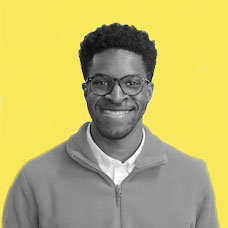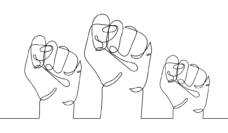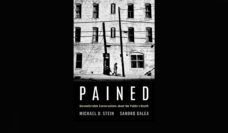In 1896, Frederick Hoffman became a pioneer of racial disparity research. He took data from the 1890 census and cataloged the many ways Black Americans had worse health than white Americans. With this data, he made the choice to look at racial disparities and ask what Dr. Ibram X. Kendi described as the racist research question: “What are the behaviors or the culture that’s wrong with this racial group such that they’re on the lower end of this racial health disparity?”
This history is important. Hoffman’s work set up much of the research about racial disparities over the last century. In Hoffman’s wake, researchers uncovered health disparities for Black, Latinx, and other minorities and explained them all away with the conclusion that non-white lifestyles and cultures were just unhealthier. Kendi’s life work has been in stark contrast.
Kendi moved to Boston University from American University this summer, founding the Center for Antiracist Research whose mission includes a focus on “novel and practical ways to understand, explain, and solve seemingly intractable problems of racial inequity and injustice.” He’s authored several books, including Stamped from the Beginning in 2016 and the seemingly inescapable bestseller How to be an Antiracist in 2019. He says his scholarship as a historian has always been directed to people who are “well-meaning, open-minded, willing to self-reflect and self-critique; people who are open to potentially transforming themselves.”
Now, in the waning moments of the summer of 2020, America’s divestment in public health, devaluation of Black lives, and willingness to allow some police to act an extrajudicial murder squad have been laid starkly in front of us. The need for transformation is obvious, and we have the choice now to consciously act like Hoffman did over a century ago, or move towards antiracism. Our task is to see the racial disparities evident in Covid-19 deaths rates and police killings and ask ourselves what Kendi calls the antiracist question: “What are the policies that could be behind this?”
“Am I challenging racist policies, or am I upholding them? Am I being antiracist or racist?”
As the country is sifting through the ashes of an ongoing racial reckoning and citizens across the country grieve in isolation in the wake of a mishandled pandemic, the clamors for something else, something otherwise, something better than this, seem louder than they have in decades. Citizens across the country are standing up and fighting for freedom from the suite of racist policies that have handcuffed the country to inequity. Kendi’s call to antiracism is an actionable move forward towards dismantling the systems in place that perpetuate this American nightmare.
Asked what freedom looks like, Kendi responds, “Freedom is not only a society where there’s equity, where there’s justice, but most specifically it is a society where there’s shared power between racial groups.” He continues, “Freedom is the ability to create choices for oneself.”
As we move towards freedom, Kendi’s call to antiracism is central to public health. In public health we’ve been tasked with being studious collectors of racial health disparity data, but beyond amassing information, we’re tasked with asking ourselves what history and policies have produced these inequities. If we’re going to move towards a vision of freedom where shared power is a reality, where health for all is a real possibility, we have to constantly ask and answer Kendi’s questions: “Am I challenging racist policies, or am I upholding them? Am I being antiracist or racist?”
Photo courtesy of Janice Checchio for BU Photography














